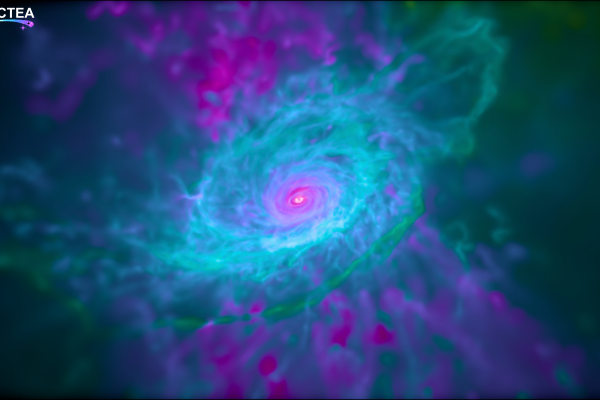For the first time ever, scientists have observed the nonlinear stage of modulational instability (MI) in a quantum system made of two repulsive components. This breakthrough, which features contributions from ICCUB researcher Alejandro Romero-Ros, was published in the prestigious journal Physical Review Letters.
The nonlinear stage of MI is a rare and complex wave phenomena caused by the exponential growth of perturbations which, until now, had only been seen in single-component systems with attractive interactions. In their experiment, the team created a Bose-Einstein condensate (BEC) (a state of matter where atoms behave like a single quantum entity) with two different hyperfine states of rubidium-87 atoms to show that, even in a purely repulsive environment, the nonlinear stage of MI can emerge and evolve into striking wave patterns.
Using a repulsive laser barrier to simulate a “dam-break” scenario, the researchers triggered the nonlinear stage of MI. This led to the formation of dispersive shock waves, which are localized high-oscillating ripples that appear when a wave breaks suddenly. In some cases, these waves collided and formed Peregrine solitons, rare and short-lived “rogue waves” that have applications across several disciplines.
The study also provides a general analytical framework for understanding how the nonlinear stage of MI expands in any two-component mixture, regardless of the ratio of particles, a tool that could be used in future research across many areas of physics.
“These results are relevant not just to quantum physics, but also to other nonlinear fields like fluid dynamics, optics, and plasma physics,” says Romero-Ros. “It’s a beautiful example of how atomic systems can serve as quantum simulators for much broader scientific questions.”
What makes this study especially powerful is its multidisciplinary approach: the experiments were conducted in a laboratory using ultracold atoms, mathematical models predicted how the waves would behave under different conditions and simulations, led by ICCUB researcher Alejandro Romero-Ros, helped bridge theory and experiment. His 1D simulations were crucial in identifying the right conditions to observe the nonlinear regime of MI, while 3D simulations confirmed the experimental results.
This work marks a major milestone in the study of nonlinear dynamics and quantum fluids and opens new avenues for exploring nonlinear wave behavior, with potential applications in quantum technologies, wave control, and even understanding natural phenomena like ocean rogue waves.
Reference:
Mossman, S., Mistakidis, S. I., Katsimiga, G. C., Romero-Ros, A., Biondini, G., Schmelcher, P., Engels, P., & Kevrekidis, P. G. Nonlinear Stage of Modulational Instability in Repulsive Two-Component Bose-Einstein Condensates. Physical Review Letters, 135(11), 113401 (2025). https://doi.org/10.1103/6jsr-f8q1



